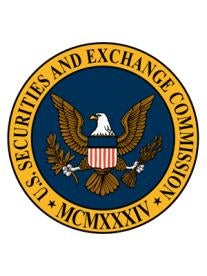The Securities and Exchange Commission recently announced that it had at last adopted final rules to implement Section 14(j) (Disclosure of Hedging by Employees and Directors) of the Securities Exchange Act of 1934, which was enacted in 2010 by the Dodd-Frank Wall Street Reform and Consumer Protection Act. New Item 407(i) of Regulation S-K will require a company to describe any practices or policies it has adopted regarding the ability of employees (including officers) or directors, or their designees, to purchase financial instruments, or otherwise engage in transactions, that hedge or offset, or are designed to hedge or offset, any decrease in the market value of equity securities of the company held directly or indirectly by employees or directors, including company equity securities granted as compensation. This disclosure will be required in proxy or information statements relating to the election of directors. The final rules specify that the disclosure requirement will apply to equity securities of the company, its parents, its subsidiaries and subsidiaries of the company’s parents, but do not define the term “designee” (instead requiring a facts and circumstances analysis).
Companies can satisfy the new requirements by either providing a fair and accurate summary of any practices or policies (whether written or not) or disclosing such practices or policies in full. A summary should include the categories of persons covered and any categories of hedging transactions that are specifically permitted and any that are specifically disallowed. If a company does not have any such practices or policies, the company must disclose that fact or state that hedging transactions are generally permitted. The adopting release clarifies that neither Section 14(j) nor Item 407(i) would require a company to prohibit hedging transactions or to otherwise adopt practices or policies addressing hedging by any category of individuals. The final rules do not define the term “hedge,” with the SEC noting in the adopting release that it believes the language of Section 14(j) (which refers to financial instruments “that are designed to hedge or offset any decrease in the market value”) is sufficiently clear and indicates that “hedge” should be applied as a broad principle.
The new disclosure requirements will become effective 30 days after their publication in the Federal Register. Companies will generally be required to comply with these requirements in proxy and information statements for the election of directors during fiscal years beginning on or after July 1 (or, in the case of “smaller reporting companies” or “emerging growth companies” during fiscal years beginning on or after July 1, 2020). A company will not be required to include the information in registration statements or in annual reports on Form 10-K, even if it elects to incorporate the Form 10-K Part III disclosure by reference from the company’s definitive proxy statement or information statement.
Still yet to be adopted by the SEC are rules implementing the Dodd-Frank requirements regarding “Pay Versus Performance” (rules proposed April 29, 2015) and “Listing Standards for Recovery of Erroneously Awarded Compensation” (Clawbacks) (rules proposed July 1, 2015).
A copy of the SEC’s adopting release is available here.
This post includes contributions from Lisa Wiznitzer.






 i
i


